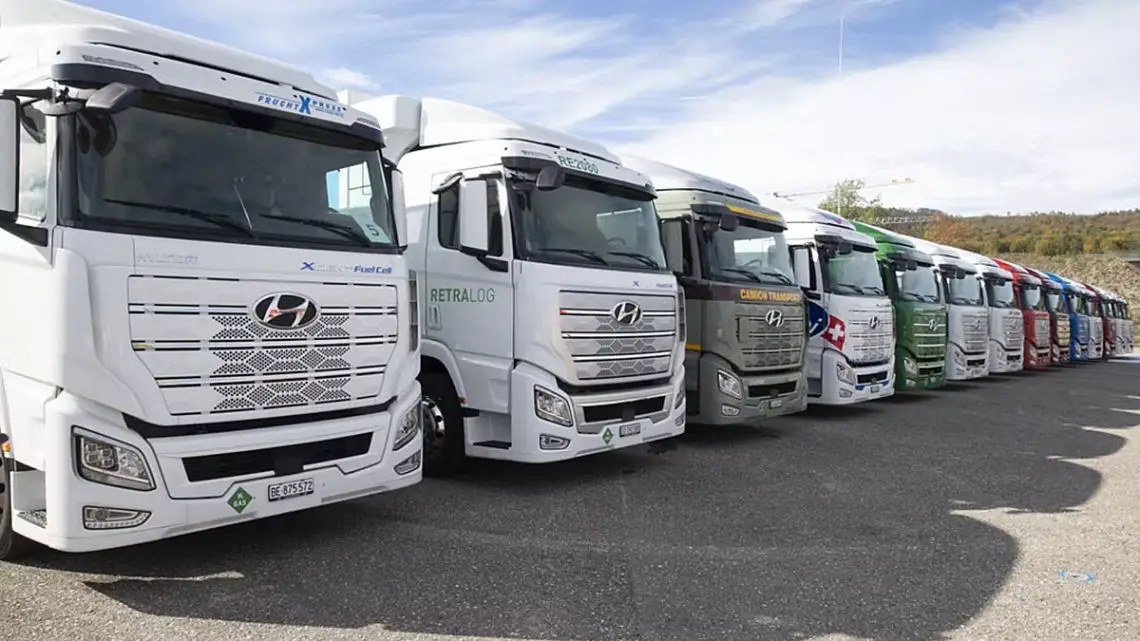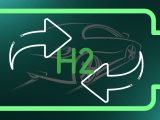
Hyundai’s Hydrogen Fleet Hits the Road
December 13, 2024Hydrogen-Powered Logistics at the Heart of HMGMA
Hyundai Motor Group (HMG) has introduced 21 Xcient hydrogen fuel cell trucks to support logistics operations at its Hyundai Motor Group Metaplant America (HMGMA) in Bryan County, Georgia. These Class 8 trucks, developed by Hyundai and operated through a partnership with logistics provider Glovis America, are being used to transport parts from suppliers to the EV plant complex. The integration of these zero-emission trucks is part of Hyundai’s broader Clean Logistics Project and marks a significant step towards environmentally sustainable manufacturing.
The Xcient trucks were manufactured at Hyundai’s truck and bus plant in Jeonju, South Korea, and imported through the Port of Brunswick in Georgia. This deployment represents a sizeable portion of the logistics fleet serving HMGMA, as more than a third of Glovis America’s operational trucks for this site are now hydrogen-powered.
The Technology Behind Xcient Trucks
The Xcient hydrogen trucks are powered by an advanced hydrogen fuel cell system. This system generates electricity through a chemical reaction between hydrogen and oxygen. Unlike internal combustion engines, the only byproduct of this process is water vapor. Hydrogen is stored in high-pressure tanks and supplied to the fuel cell stack, where it combines with oxygen from the air. The electricity produced powers the electric motor, providing a clean and efficient energy source for heavy-duty transportation.
One of the key advantages of this technology is its quick refueling time, which is comparable to that of diesel trucks, making it a practical alternative for long-haul logistics. The Xcient trucks also boast a range of up to 400 miles on a single hydrogen fill, depending on the operation.
Why Georgia?
Hyundai’s choice of Georgia for its first dedicated EV metaplant stems from a combination of strategic and logistical benefits. The state provides access to a highly connected transportation network, thanks to ports like Brunswick and Savannah, alongside extensive road and rail infrastructure. Meanwhile, incentives from state and local governments have made Georgia increasingly attractive for clean energy ventures.
Additionally, Georgia’s focus on fostering a skilled workforce has aligned well with Hyundai’s operational goals. The HMGMA is set to create over 8,100 new jobs in the coming years, further cementing the state’s reputation as a hub for electric vehicle manufacturing.
Other News on Xcient Hydrogen Trucks and Advancing Technology
Globally, Hyundai has been pushing the boundaries of hydrogen-fueled transportation through the Xcient trucks. First launched in Europe, the hydrogen trucks have been supporting clean logistics across Switzerland, where they have delivered over 5 million kilometers of carbon-free transportation since their debut in 2020. These deployments are helping Hyundai establish hydrogen-powered logistics ecosystems as scalable solutions for a wider range of industries.
Technological advancements include increased fuel cell durability and storage. Hyundai’s latest updates focus on improving energy density for the hydrogen tanks, reducing weight, and making the trucks more cost-effective in the long term. These innovations continue to position the Xcient as an attractive option for industries transitioning away from fossil fuels.
Hyundai’s Competitive Edge in the Market
Hyundai’s Xcient hydrogen trucks stand out for their emphasis on scalability and versatility. The company has invested heavily in building a hydrogen ecosystem that extends beyond manufacturing the trucks. Its HTWO brand focuses on the entire hydrogen value chain, encompassing production, storage, refueling, and utilization.
Additionally, Hyundai’s focus on closed-loop systems, where hydrogen-powered vehicles operate within a circular model alongside hydrogen production and distribution networks, sets it apart. This holistic approach ensures that sustainability goals are met across all stages of the value chain.
Competitors in the Hydrogen Truck Market
Several companies are competing in the hydrogen truck manufacturing space, with Nikola Corporation, Toyota, and Daimler leading the charge. Nikola’s Tre hydrogen truck has gained attention for its extended range and modular fuel cell system. Toyota is leveraging its Mirai fuel cell technology to enter the heavy-duty vehicle sector. Meanwhile, Daimler, through its subsidiary Freightliner, has been developing hydrogen trucks under its GenH2 line. Other players like Hyzon Motors are also making headway in offering hydrogen solutions for commercial vehicles.
Applying Hydrogen Truck Technology Today
The deployment of hydrogen trucks like the Xcient demonstrates that zero-emission logistics are no longer a distant goal but a reality shaping industries today. Their versatility and efficiency mean they can support a range of applications, from long-haul freight to regional deliveries. Hydrogen-powered vehicles are particularly promising for sectors such as construction, agriculture, and mining, where heavy-duty operations demand reliable power solutions.
However, to expand adoption, the development of hydrogen infrastructure, including refueling stations and localized production facilities, will be critical. Hyundai’s plans for on-site hydrogen production and refueling stations at HMGMA are a step in this direction. Collaborative efforts between private companies and public organizations will also be essential to scale the technology and make clean logistics more widespread.
Looking ahead, hydrogen fuel cells could revolutionize not just road transportation but also rail and maritime operations, addressing a larger chunk of global emissions. With continued innovation and collaborative initiatives, hydrogen-powered technology has the potential to redefine how goods move across the world, paving the way for a greener and more sustainable future.



 With over 15 years of reporting hydrogen news, we are your premier source for the latest updates and insights in hydrogen and renewable energy.
With over 15 years of reporting hydrogen news, we are your premier source for the latest updates and insights in hydrogen and renewable energy.